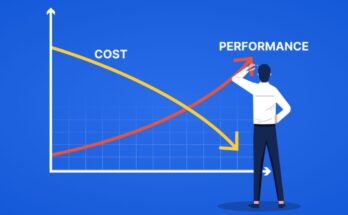The term Sustainable Investment has gained a lot of popularity over the last two decades. Gone are the days when investors used to analyse only the financial aspects of a prospect before investing. Of course, financial elements are still essential, but other factors are also important now. The word “sustainable” comes up quite often, and investors too are looking for opportunities they consider “sustainable”. A sustainable company will provide long-term monetary profits to its investors/stakeholders, rather than filling the coffers and going kaput after a while.
Not just investors, people in general prefer sustainable companies/providers these days. This has already made a lot of companies go completely sustainable or begin to adopt sustainable practices. We can also see many new ventures starting off on sustainable lines.
When customers dislike a company, its revenue will go down eventually, which puts the investor at a loss, and then investors will dislike the company too. This is why Investors do not prefer companies with a track record of operational failures or unethical standards.
Read on to understand the rise of sustainable finance and its impact on the investment banking industry.
Analysing the rise of sustainable finance
The term sustainable financing is often linked with green financing. But green financing is only a small component of sustainable financing.
Sustainable companies make a positive impact on the society and the environment. They do not deprive the society of resources. Instead, sustainable companies focus on addressing the pain points of individuals in the society. Such companies also focus on the welfare of their employees and do not exploit them for profit. Almost every investment bank is now taking measures to increase the share of sustainable companies in their portfolios.
ESG analysis: The biggest impact of sustainable financing on investment banks
Sustainable finance is closely linked to Environmental, Social, and Governance (ESG) standards. ESG analysis includes determining the impact of target companies on the environment and society. It also includes analysing the ESG score of the target company before finalising the deal.
ESG score determines the environmental and societal impact of companies. However, it is not necessary that each and every company will have an ESG score assigned to it. For some target companies, investment banks need to arrive at the ESG scores by themselves. Usually, the ESG score of a company will range between 0 and 100.
To determine the ESG score, investment banks have to analyse various ESG factors. Given below are some of the key determiners of the ESG score:
Environmental factors:
- Resource depletion
- Greenhouse gas emissions
- Deforestation
- Biodiversity loss
- Animal welfare
- Waste production
Social factors:
- Inequality
- Inclusiveness
- Working conditions
- Child labour
- Human trafficking
- Forced resettlement
- Controversial weapons
- Employee relations
Governance factors:
- Executive leadership
- Executive remuneration
- Board diversity
- Internal controls
- Tax avoidance
- Corruption
- Product quality
How do investment banks enhance sustainable financing?
The rise of sustainable finance investment banking means there is a need for ESG experts. Investment banks might need to hire full-time ESG experts to find sustainable companies. Instead of hiring full-time ESG experts, banks can also consider outsourcing their ESG research requirements to a third party and save a lot of money. This will also help investment bankers pay more focus on their core responsibilities.




